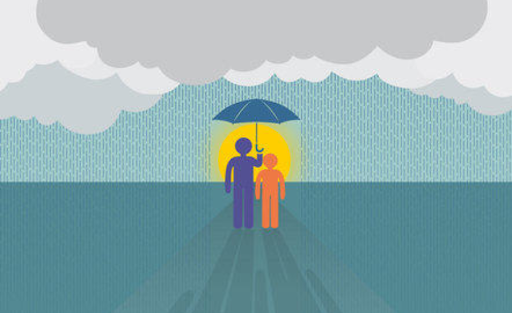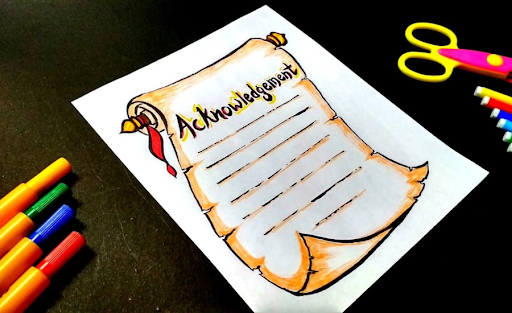The Psychology Behind Gratitude: Why Acknowledgements Matter
In a fast-paced world that often celebrates speed, efficiency, and independence, the simple act of saying “thank you” might seem small or even unnecessary. But beneath those two words lies a powerful force—gratitude. It’s more than just politeness or formality. Gratitude plays a central role in human connection, emotional well-being, and social harmony. And when it comes to acknowledgements, especially in projects, workplaces, or academic environments, the psychological benefits run deeper than many realize.
Acknowledging others isn’t just about giving credit. It reflects a mindset of appreciation, humility, and emotional intelligence. So why do acknowledgements matter so much? What’s happening psychologically when we show gratitude, and how does it impact our relationships, performance, and mental state?
Let’s explore the psychology behind gratitude and why acknowledgements carry such meaningful weight in both personal and professional settings.
Gratitude: More Than a Courtesy
At its core, gratitude is the recognition and appreciation of something received—be it help, support, kindness, or a positive outcome. It’s not just a reaction to favors or gifts. Gratitude is also a mindset, a way of seeing and valuing the contributions of others.
Psychologically, gratitude triggers a range of positive emotions, including happiness, contentment, and hope. According to studies in positive psychology, people who regularly express gratitude are more optimistic, have stronger relationships, and report greater life satisfaction.
Acknowledgements are simply one way we give form to gratitude. Whether in written words at the end of a project or verbal thanks during a meeting, they help us recognize our interdependence and shared effort.
The Brain on Gratitude
Neurological research shows that gratitude activates brain regions associated with empathy, reward, and moral judgment. In particular, the prefrontal cortex and anterior cingulate cortex are engaged when someone experiences or expresses gratitude. These areas are involved in decision-making, emotional regulation, and social reasoning.
When we acknowledge someone, it sparks a positive feedback loop:
- The person giving thanks experiences a sense of emotional relief and satisfaction.
- The person being acknowledged feels seen, valued, and more motivated to continue their efforts.
- The relationship between both individuals grows stronger and more trusting.
This biological response is why genuine acknowledgements can have a lasting emotional impact—far beyond what we might expect from a simple statement of thanks.
Acknowledgements Build Connection and Trust
Human beings are social creatures. Our sense of belonging, purpose, and identity often comes from our relationships with others. Acknowledgements nurture these connections by:
- Validating the efforts of others
- Demonstrating emotional awareness
- Creating a culture of mutual respect
In group projects, acknowledging your teammates isn’t just about formality. It’s a way of saying, “We succeeded because we worked together.” This builds trust, encourages collaboration, and reduces conflict in future efforts.
In workplaces, a culture that includes frequent and sincere acknowledgements often leads to higher morale, reduced stress, and stronger employee engagement. Leaders who express gratitude are viewed as more approachable, empathetic, and effective.
The Role of Gratitude in Mental Health
Beyond its social effects, gratitude also plays a key role in mental health. Psychologists have found that practicing gratitude can help reduce symptoms of depression and anxiety. When people take time to acknowledge what they’re thankful for—including the people around them—they tend to shift their focus away from negativity or self-centered thinking.
Acknowledgements serve as an outward form of this internal practice. By expressing appreciation, you reinforce a positive mindset, which can buffer against stress and burnout. It helps you see the value in shared effort and move beyond feelings of isolation or inadequacy.
Gratitude also encourages humility. It reminds us that achievements are rarely the result of individual work alone. Recognizing others helps break down ego-driven behavior and supports a healthier, more balanced perspective.
Why Acknowledgements Matter in Specific Contexts
In Academic Work
In schools and universities, students often include an acknowledgement section in their thesis or group project reports. While it may seem like a simple requirement, it holds real psychological and professional significance. It shows that the student understands the value of support—whether from a supervisor, peer, or institution—and recognizes that academic success is rarely a solo effort.
This attitude also helps prepare students for real-world team dynamics, where collaboration and gratitude are key to long-term success.
In Workplaces
In professional environments, acknowledgements—whether verbal or written—can change the dynamic of a team. Recognizing contributions during meetings, in emails, or within project documents shows leadership and emotional maturity. It also encourages others to step up, share ideas, and feel that their input matters.
Workplaces that embrace a culture of gratitude tend to have lower turnover rates, higher employee satisfaction, and greater innovation. People are simply more willing to contribute when they know their efforts are noticed and appreciated.
In Creative Fields
Artists, writers, musicians, and filmmakers frequently include acknowledgements in their work. These aren’t mere formalities. They are expressions of connection, collaboration, and creative inspiration. Acknowledging mentors, collaborators, or even the audience deepens the emotional connection to the work itself and often makes the final product more authentic and relatable.
Barriers to Expressing Gratitude
Despite its benefits, many people find it difficult to express gratitude openly. Some common reasons include:
- Fear of vulnerability
- Ego or pride
- Assumption that the other person already knows
- Cultural norms that discourage emotional expression
However, overcoming these barriers can lead to more meaningful relationships and stronger communities. Learning to say thank you—and mean it—requires self-awareness and a willingness to connect with others on a human level.
Making Acknowledgements Authentic
To ensure your acknowledgements are sincere and meaningful, consider the following:
- Be specific: Mention exactly what the person contributed.
- Be timely: Don’t wait too long to express thanks.
- Avoid clichés: Use your own words to describe how their support helped.
- Speak or write from the heart, but keep it respectful and professional.
Whether in a project report, an email, or a team meeting, a genuine acknowledgement can make someone’s day and reinforce a sense of shared success.
Conclusion
Gratitude is a powerful emotion with deep psychological roots. It’s not just about good manners—it’s about recognizing the importance of others in our journey and building stronger, healthier relationships in the process. Acknowledgements are one of the simplest yet most impactful ways to express gratitude in a formal or structured setting.
Whether you’re a student finishing a group project, a manager closing a successful campaign, or a writer completing a book, take the time to acknowledge those who made it possible. You’ll not only honor their efforts, but also nurture a mindset that leads to better collaboration, better mental health, and a better understanding of what it means to succeed together.





